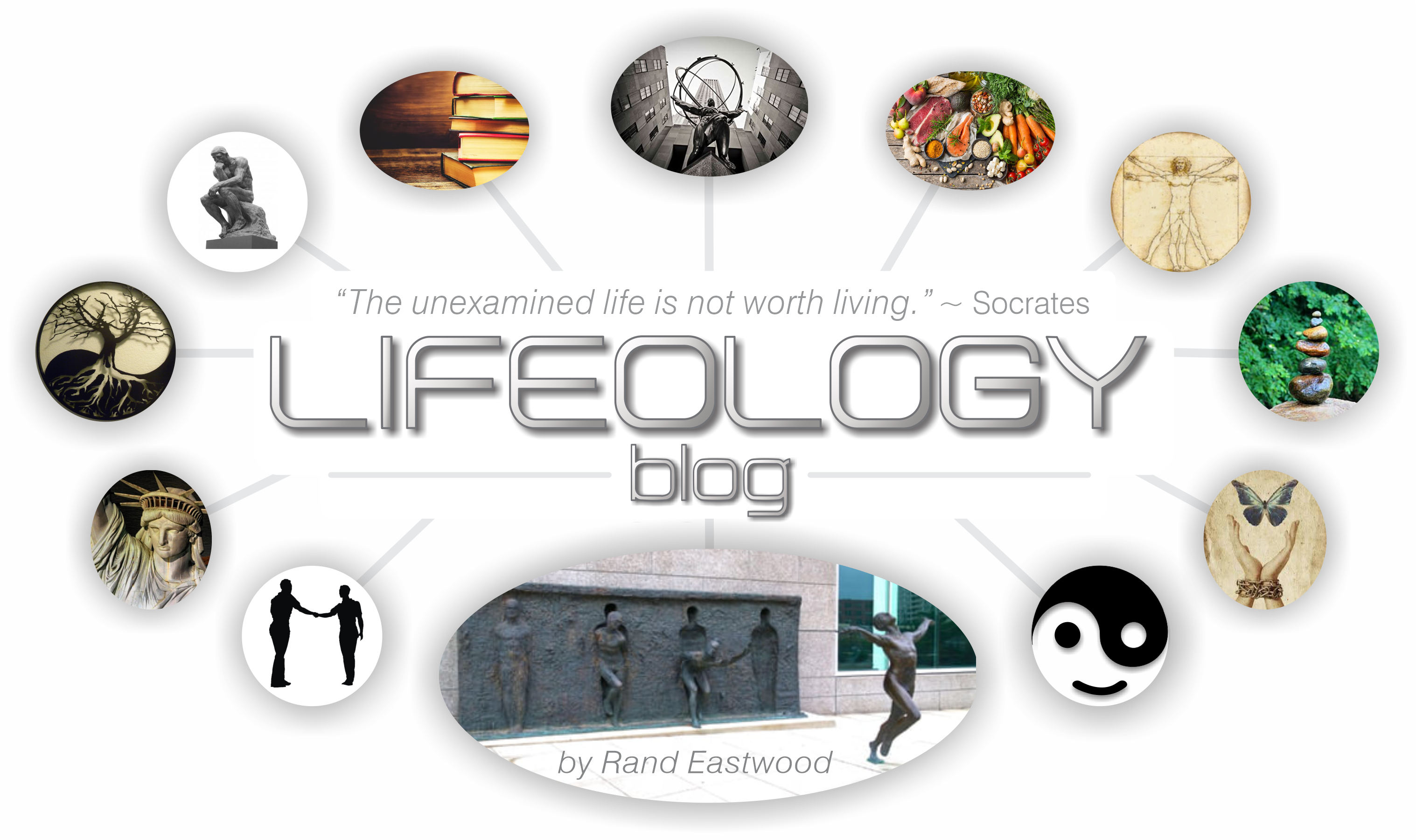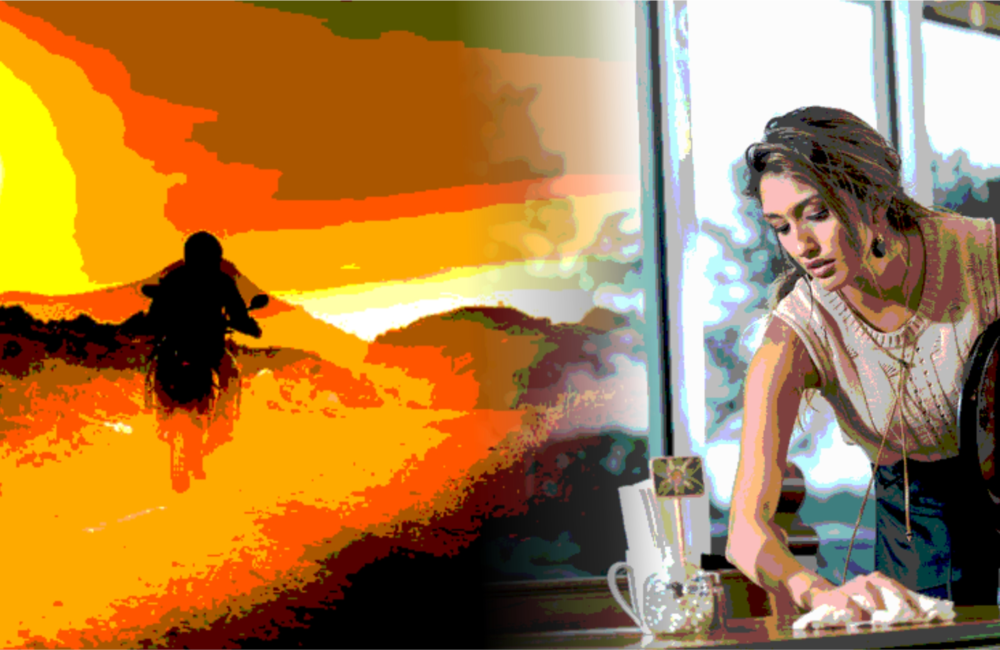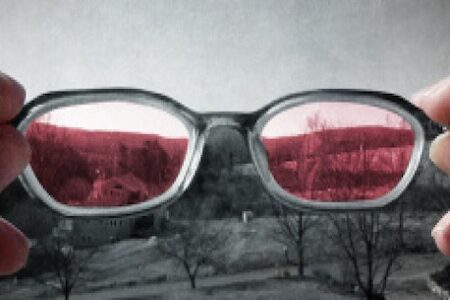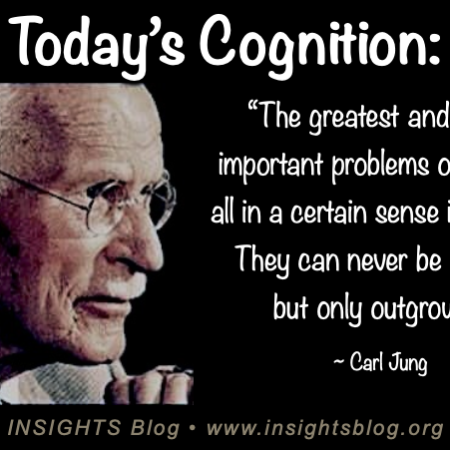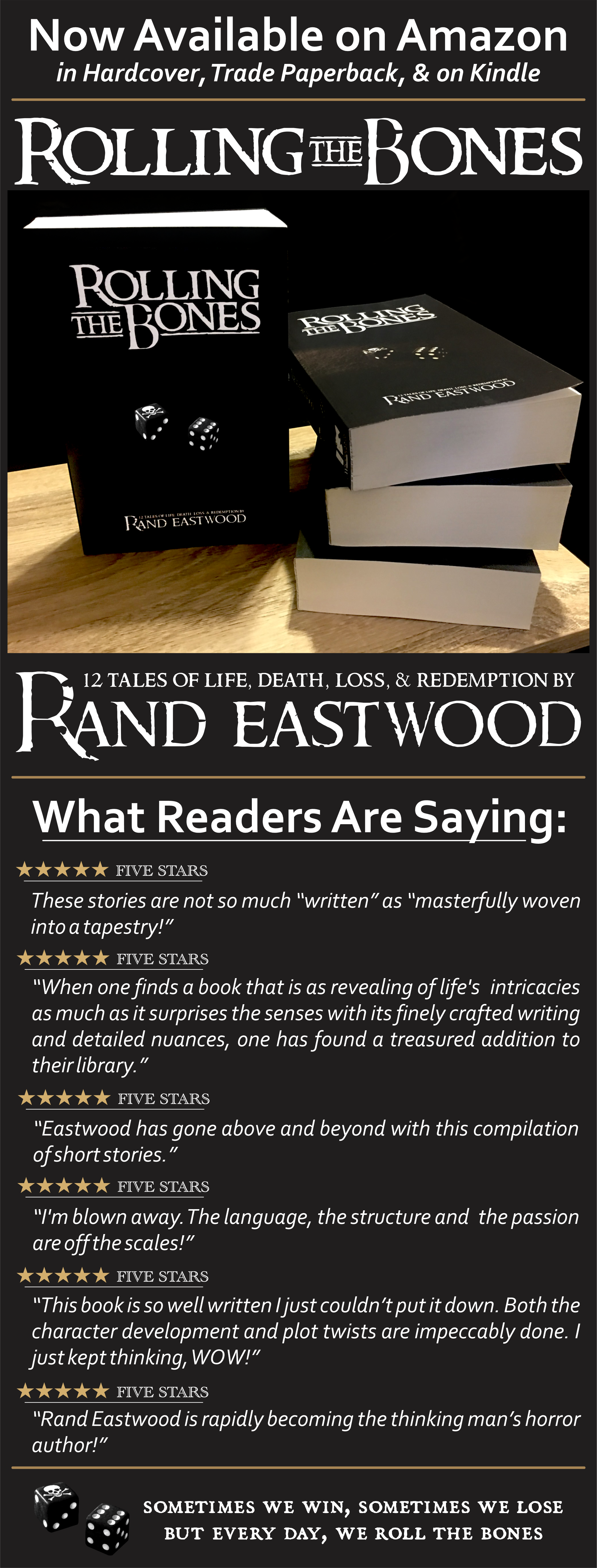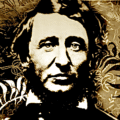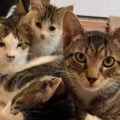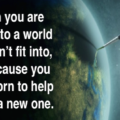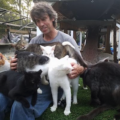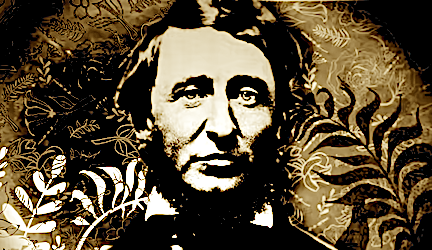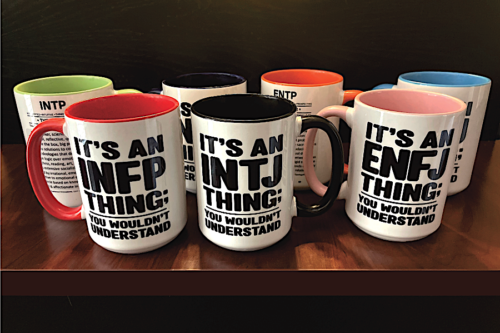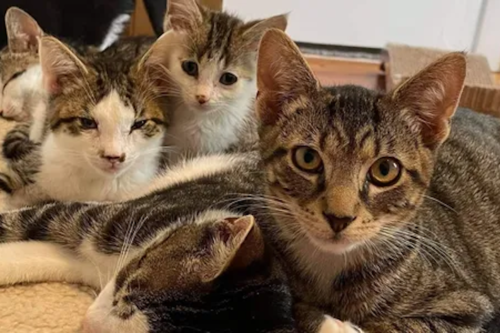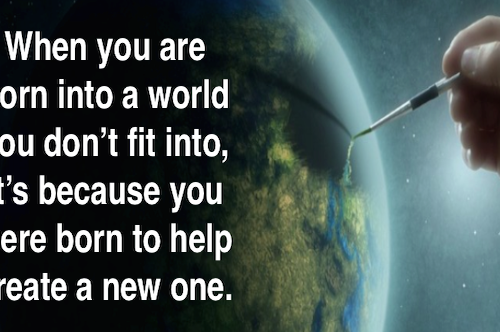This story began, as so many do, as an opening scene that kept rolling in my head for several days until I finally sat down and hammered it out. The scene was simple: a guy riding alone on a motorcycle on a highway somewhere out west on a hot summer day, with a storm brewing ahead on the horizon.
That’s all I had when I started, though once begun, the story further unfolded to where he stopped at a diner in a small town along the way, mostly to avoid riding in the approaching storm.
But at that point, it came to a grinding halt. So I put it away for a while…
Over time I toyed with it here and there, but still nothing was coming—until the feisty waitress “Isa” burst onto the scene and took over the story, and suddenly the rest of it revealed itself to me.
Once I understood that the story was about Isa, and not so much the biker (though both in a way), I was finally able to wrench the rest of the story from the ether.
Hell or High Water turned out to be very fun to write, and subsequently became one of my favorite stories included in my collection Rolling The Bones: 12 Tales of Life, Death, Loss, & Redemption—which comprises 8 short stories, 3 novellas, and a short novel.
So, believing that Hell or High Water is one of the better stories in that collection, and is not available as a Kindle single, I wanted to share it—so I decided to publish it here. And a bonus: you can download the ebook for free here!
I hope you enjoy reading it as much as I enjoyed writing it:
“Throw your dreams into space like a kite, and
you do not know what it will bring back, a new
life, a new friend, a new love, a new country.”
~ Anaïs Nin
Hell or High Water
It had been a long, hot, arduous ride on the highway, and he needed a break. Get off his bike, stretch his legs, take a piss.
And besides, he was getting hungry.
On top of all that, as he traversed the stark, lonely flatlands of the West along highway 40, he could see for what seemed like forever—and what he saw, up ahead on the horizon, was an ominously darkening sky. He knew it was too early for nightfall to be setting in, and a quick glance down at the Timex Expedition strapped to his tanned wrist told him it was just after 5 PM.
So no, it definitely looked like rain up ahead. In fact, it looked like a helluva storm brewing—not something he wanted to ride into.
One look at his odometer, and he quickly ran the math: just over six hundred miles today. Not bad, really, but he usually did more.
What the hell, give The Wing a rest, as he patted the side of the gas tank that arched up between his legs. Stop somewhere and soak up some air conditioning.
A ways back, he’d seen a town off on the horizon, and was now approaching what appeared to be the exit. To the left, he spied a truck stop on the other side of the highway, down at the bottom of the ramp. Several big rigs sat idling in the lot.
Finally, an exit sign:
MAYBELLE
NEXT EXIT
Sounds like a small town, as he signaled and slowed for the ramp. He liked small towns. Liked the people, liked the food. Thought he’d stop in, scrounge up some home-style grub.
Maybe even stay the night, if the weather didn’t clear.
He headed down the steep ramp, which teed at the bottom against an ancient two-lane road, the asphalt split and broken. Pausing at the stop sign just long enough to glance both ways, he turned left, which took him back under the highway.
He was shooting for the main drag in town, and the truck stop was over on that side of the bridge, so he figured chances were good that was right direction. As he passed under the bridge, he could see down the road, maybe a half-mile beyond the stop: a Holiday Inn and a cluster of fast-food restaurants.
Looked promising.
There was a traffic signal at the intersection on the other side of the bridge, where the opposite ramp came down from the highway and continued on to the truck stop at the bottom. The light was red as he approached, so he slowed, savoring the cool shade of the bridge. But then the light suddenly blinked to green, so he opened her up.
Once he was out from under the bridge, he noticed a semi-truck barreling down the ramp to his right, coming off the highway at a pretty good clip. Nervous, he accelerated slightly. Yes, the truck had the red; but if it happened to run the light—a possibility he was always cognizant of, as any experienced rider should be—he wanted to be well past it. He didn’t want to take any chances, especially with an eighteen-wheeler.
Keeping an eye on the truck, he was shocked to see that not only was it not slowing, but instead accelerating. He quickly realized that he and the truck were approaching the intersection in tandem; at this rate, they would reach the intersection at exactly the same time.
Not good.
Just then, the rig started blowing its horn, the foghorn-like sound echoing off the bridge behind him.
With only a split-second to make a decision, he glanced down and quickly evaluated the pavement—cracked, broken, riddled with gravel and bits of deteriorated asphalt—and knew there was no way he would get the bike stopped in time on such a loose surface. He had no choice but to try to beat the truck through the intersection.
Laying down and gunning the bike, he managed to reach the intersection just ahead of the truck. It was a massive rig, a sleeper cab with one of the longest trailers he’d ever seen.
And it didn’t even pretend to stop.
For an instant, he thought he would just clear the front end of the cab; but from the corner of his eye he saw it was closing the gap much quicker than he’d expected, the blaring horn louder than ever. Glancing to his right, he was looking directly at the grill of the monster, its headlights staring down at him like cold, angry eyes.
Instinctively, he yanked the handlebars to the left and laid the bike down just as the rear tire, squealing and smoking, slid under the truck.
The steel beast barreled over him, a whoosh of air seeming to come from all directions at once, the deafening roar of the big diesel canceling out all other sound. He and his bike went cleanly under, only his head taking a good hard whack on the bumper as he went. But the helmet did its job; kept his brains all in once place.
The impact with the bumper threw his head back, forcing him to let go of the handlebars, and the bike slid on ahead of him, spinning under the truck, sparks flying.
With no handlebars to hold on to, and without the weight of the bike serving as ballast, he began tumbling uncontrollably bouncing between the bottom of the truck and the asphalt several times in rapid succession as it raced over him, beating his body violently. One particularly severe blow—the back of his helmet smashing against a steel girder than ran across the bottom of the trailer—sent a white flash through his mind, and he lost consciousness for an instant; but then he was back, and he opened his eyes just in time to see the rear wheels of the trailer rumbling directly toward him and closing fast.
But then, as quickly as he went under the rig, he was out again, tumbling off the road and into the weeds and unkempt grass that ran between the ramp and a large, open field.
Miraculously, both he and his bike had slid out from under the truck along the gap between the rear wheels of the cab and those of the trailer, which clipped the rear of the bike as it exited, shattering the taillight and accelerating its spin.
As he lay in the grass and weeds, head reeling, he turned and watched the truck continue on, blaring its horn non-stop. Best he could tell, the driver never even touched the brakes; he simply continued on down the ramp toward the truck stop, the blaring horn fading into the distance with it.
His tangle with the truck had kicked up a cloud of dust, which was now settling over the broken bits of red plastic that littered the road in front of him, accompanied by the rubbery smell of hot assault, the lingering odor of diesel exhaust, the sweet aroma of grass and foliage wafting across the field.
Once the truck was out of both sight and earshot, a hush fell over the entire area, save the soft rustle of grass and weeds, a timid warning that the wind was picking up, pushing ahead of the approaching storm.
Amazed that he was still conscious, he lay still for awhile, afraid to move as he listened to his heart pounding in his ears. He’d had the breath knocked out of him, and was sucking air as quickly and deeply as he was able. Soon he noticed that his face shield was fogging up, hindering his breathing, so he reached up and yanked it open, gasping for fresh air.
Eventually, as both his heart and lungs began to calm, the quiet purr of the Gold Wing reached his ears, as it too lay in the weeds a short distance up the road from him, still running.
And then he suddenly realized: he felt no pain.
Upon this realization, he focused on his body, mentally going over every inch—every muscle, every bone, every joint, every patch of skin—monitoring himself for any pain which would be indicative of injury.
Astonishingly, there was none.
He lifted his head off the grass and looked down at himself. He seemed intact; just some torn clothing—his leather jacket had held up pretty well, surely saving much of his skin from erasure—but both knees of his jeans were torn open.
Aside from that, he was a little dusty, but that was about it.
He sat up and pulled off his helmet, allowing an unkempt mess of sandy, sun-bleached hair to fall down over his face.
Sweeping his hair back with one hand, he peered down the hill in the direction the truck had been traveling. He saw no sign of it; apparently, it had continued on, unabated, all the way into the truck stop somewhere.
Looking around the area, he realized that he was entirely alone—there was nobody around, no traffic whatsoever.
Nobody had witnessed the huge truck run the red light and nearly kill him.
He stood up, slowly, methodically, testing each joint for pain or malfunction before moving to the next. All his limbs and joints held, everything seemed to be working okay.
He held up his helmet, examined the scrapes and chips that now populated the formerly sleek black finish. The tinted face shield was cracked, but the helmet had survived, intact.
He brought it up to his lips, and kissed it.
“Thank you,” he whispered.
Then he turned to his bike.
After picking it up and determining that it, like himself, had miraculously survived, relatively unscathed—scrapes all along one side, of course, and a busted taillight, but that was about it—he re-mounted it, and strapped his helmet back on.
He tried the brake, the clutch, and the throttle, turned the handlebars both ways, walked the bike forward a few feet and back again. It seemed fine, no serious damage.
Definitely ridable.
Gazing down the ramp at the truck stop in the distance, he contemplated going down there, try to find the guy—or at least call the police and file a report—but decided against it; it wouldn’t be worth the time or effort. He didn’t have much money, and didn’t want to risk a lawsuit, court case, and all the legal fees involved if things turned ugly—which they likely would, since there were no witnesses. The driver was a working man, probably a family man, most likely union—and he was just a single, lone “biker dude.” Who would take his word over the trucker’s?
Then he remembered: the motorcycle add-on to his drivers license had expired last year, and he hadn’t gotten it renewed.
That pretty much clinched it.
He needed to just shake it off, consider himself lucky to be alive, and be on his way. Two weeks ago—after spending two years completely rebuilding and restoring the old Gold Wing—he’d set out to ride across the entire country, coast to coast, on his shining silver machine. It was one of the few things on his bucket list, and he promised himself he’d do it before he turned forty. Now, just in time, with forty coming down the pike, he was finally realizing his lifelong dream—and was determined to finish it, come hell or high water.
And, pie in the sky, he also thought maybe he’d find himself a good woman somewhere along the way, an attractive, intelligent, sexy, fun-loving girl, that he was actually compatible with—a dream that had eluded him for nearly forty years.
Resolved to continue on with his mission, he eased the bike back down to the deadly intersection and stopped, revving the engine a few more times as he once again visually checked over the bike, looking and listening for any problems whatsoever.
He detected none.
Still marveling at his good fortune, he opened the throttle and continued his trek westward toward Maybelle.
•
Before long he was riding through the center of town. Main Street was picturesque: small, family-owned businesses lining the sun-bleached asphalt, complete with awnings stretched out over the sidewalks, many adorned with hand-painted signs.
One of those hand-painted signs—done in a stylish script, dull white on a faded blue wood facade—caught his eye:
Dee’s Diner
So he swung the purring Gold Wing into one of a row of empty parking spaces that ran along the sidewalk.
A wooden porch stepped up to a glass entrance door under the awning that bore the eatery’s name, and a bright pink neon OPEN sign blazed high in the front window, one lone arc along the bottom blinking sporadically.
In one smooth motion, he killed the engine, dismounted, and dropped the kickstand.
As he turned to the diner’s entrance, he pulled his helmet off, again deftly brushing his hair back over his head with one hand—an action so habitual it was more a thought than a motion— and looked over the quaint little diner.
Deciding the place still looked inviting, he glanced around the area, the brilliant sunshine igniting his already piercing blue eyes into an icy silver.
Just a few pedestrians strolling here and there, taking care of their own business, paying him no mind—save one envious young boy gawking at his bike from across the street, straining to see back over his shoulder as his mother pulled him backward by the hand and they disappeared into Keeping You In Stitches, a fabric and sewing store.
Looking up and down the mostly vacant street, he nodded to himself in approval.
Not much traffic.
Not much noise.
Not much anything.
He liked that.
Slinging his helmet over the left handlebar, he stepped into the shade of the awning and up onto the porch. He noticed, with a nearly undetectable grin, that the hollow sound of his riding boots clomping across the wood sounded comically like that of a gunslinger slowly approaching the swinging doors of a saloon in an old western.
Then, that classic Bon Jovi song popped into his head:
I’m a cowboy…on a steel horse I ride…
Jesus, as he approached the door. When was that? Eighty-five? Eighty-six? Shaking his head at the astonishing passage of time, he pushed through the heavy glass door, and was greeted by a welcome rush of cold, air-conditioned air.
A tiny bell mounted above the door announced his arrival with a Christmasy jingle. Looking around, he found the diner mostly empty—just an elderly couple occupying a small table in the corner of the L-Shaped dining room that ran along the front of the store then hooked back to the left.
Leaning in, he peered around the corner. Lined with booths along the windows and tables along the inside wall, the rear dining area ended at a short, somewhat dark corridor with restroom doors to either side, and a rear door bearing a long, skinny Employees Only sign.
His gaze returned to the old couple in the corner—conversing quietly, drinks but no entrées yet for him to judge—then back to the front, where an unmanned cash register sat idly on the end of the counter.
On the floor beside the counter, a waist-high easel carried a small blackboard that was scribbled over in colored chalk:
Today’s Special:
Baked Cod Dinner
Only $8.95!
A chrome single-post sign stood right behind it, white-letter instructions carved into a red plastic panel:
Please take a seat.
Your server will be with you shortly.
He turned and wandered into the dining area, scoping all the empty tables. He decided on a window booth, front and center—a little oversized for just him, but a good spot to keep an eye on his bike. Selecting one with a good view of the street, he peeled off his jacket and tossed it onto the other seat.
Just as he was shuffling in, a waitress burst through the thin, windowed double-doors behind the counter, a brief cacophony of kitchen noise wafting out behind her before the doors rattled shut. Holding a glass of ice water in one hand and a set of wrapped silverware in the other, she rounded the end of the counter, expertly swinging her hips out just far enough to clear, keeping her actual walking distance to a minimum. And she did it without looking, too—she had turned and looked to her right, glancing at the food window as she passed by.
He watched her approach, summing things up: early to mid-thirties, average height (maybe a little tall, but he liked that), somewhat busty, (he liked that too), short denim skirt, black apron, white blouse and sneakers, strawberry blonde hair pulled back in a banana comb, pen riding above her right ear, a couple more in her shirt pocket. And, he noticed, she wore very little makeup—just mascara and eyeliner, maybe lip gloss.
Overall, he found her attractive, especially for her age.
Closer now, he noticed her name tag, hanging haphazardly from the lapel of her blouse, with ISA hand-written across it in black magic marker.
“Hi there. I’m Isa—she pronounced it eye-suh—and I’ll be taking care of you this evening.”
Moving quickly, professionally, she placed the glass of ice water and the rolled silverware on the dull white veneer table in front of him. She then pulled a small menu from her apron—but before handing it over, she paused, looking him over.
He looked calmly up at her and waited, again running his hand through his unruly hair.
“Not from around here, are ya?” she asked bluntly.
He shook his head gently. “Passing through.”
“Yeah? From where?”
He shrugged. “From around.”
She smirked, recognizing the wisdom in his answer.
“Wise man.”
He smiled back.
“Well, you got good timing; kitchen closes from four to five for the changeover—”
—she motioned over her shoulder with her thumb—
“—we just opened back up for dinner—so everything’ll be fresh off the grill.”
She started to place the menu in front of him. “Todays special is the baked co—”
“I already know what I want,” he interrupted, waving off the menu. “You got some kind of double-cheeseburger? Fries?”
She smiled. “I think you’d like the Double-Dee burger.”
“Double-D Burger?” he repeated slowly, over-enunciating each of the words.
“Not the letter D, but the name Dee, as in Dee’s Diner. Like on the sign out front. She was the original owner, started the place. Passed away last year, bless her heart.”
With that she stopped, glanced around, then leaned in with a sympathetic frown, and whispered, “Breast cancer.” She then stood and continued in a normal voice.
“Her son Donny runs the place now. Place is goin to hell, too, y’ask me. He’s runnin it into the ground. Keeps wantin to change everything, and doesn’t know what he’s doin. Anyway, I think you’d like the Double-Dee.”
“Sounds good…what’s comes on it?”
She rattled it off like a bullet list, probably for the millionth time: “Double beef patties, double cheese, double bacon, double toppings, the works.”
“Sold.”
“You got it!” She produced a tiny notepad from her apron, flipped it open, plucked the pen from above her ear, and commenced scribbling.
“The Double-Dee burger comes with fries, and another side of your choice.”
“And what are my choices?”
“Coleslaw, baked beans—those are pretty good, one of Dee’s personal recipes, everybody around here loves ’em—and we have three different salads—”
She stopped at that, and gave him a frank look. “I don’t suppose a guy like you’d be much interested in a salad, would you?
He smiled. “A guy like me would not.”
“Cottage cheese, fruit cup—”
“I’ll go with the baked beans, on your recommendation.”
“Good! You’ll love ’em. Everybody does.”
She scribbled some more, then looked up.
“And to drink?”
“What kinda beer you got?”
She rolled her eyes. “I wish. Can’t serve liquor here, honey, no license. So it’s just soda, coffee, tea, milk, juice, and—”
“Water,” they both said in unison, both looking down at the now sweating glass on the table.
“Okay. Coffee then.”
“Black? Sugar?”
He nodded, impressed. “Black, with sugar.”
“Thought so. I’ll go put your order in, and be right back with your coffee.”
With that, she flipped the notebook shut and strutted away.
Marveling at her excellent judge of character, he watched her go, smiling with the suspicion that she was swinging that denim skirt just a little more than necessary.
•
He was just returning from the restroom when she arrived back at his table, white cup and saucer perched in hand, steam rolling off the dark liquid. As she placed it on the table in front of him, he noticed a stirring spoon and two packets of sugar arranged neatly on the saucer.
“There ya go, honey. Dinner rush hasn’t hit yet, so your Double-Dee should be up right quick.”
As she spoke, he tore open a sugar pack and poured it in, stirring with the spoon. Finished, he pulled a pack of cigarettes from his shirt pocket and began tapping it on the table while glancing around at the other tables nearby.
“Say—can I get an ashtray?”
“Um…sorry, ya can’t smoke in here.”
“Seriously?”
“New county ordinance, passed just this year. No smoking in public restaurants. Unsanitary or something.”
He held the pack up between them. “People inhale this crap into their lungs,” he said emphatically. “You think they’re gonna care if some of it gets on their food?”
“Not my rules, honey. Just gotta enforce ’em. Besides, that’s not what it’s about. That’s never what it’s about. It’s about money, just like everything politics. First they outlaw it, then they license it, and you gotta pay ’em for the privilege. That’s how pretty much everything works nowadays. Sucks, y’ask me.”
He smirked, recognizing the wisdom in her statement.
“Wise lady.”
She smiled back.
Sighing heavily, he slid the pack back into his shirt pocket. Then, giving her an incredulous look, he raised his hands into the air in a gesture of futility.
“Jeez—no drinking, no smoking….what can you do here?”
“Here in Mayberry, not much.”
“Mayberry?”
“Maybelle, Mayberry, what’s the difference? Not much, y’ask me. But at least Mayberry sounds better than Podunk, dontcha think?”
He put his arms down and smiled. “Yes, I’d say it does. So you’re telling me there’s nothing to do here in Podunk?”
“Well…there’s always Jake’s.”
“Jake’s?”
“Up the road a ways.” She jerked her head slightly to the right, indicating that direction. “In fact, should be hoppin tonight—karaoke night, they do that on Thursdays—but then, it’s hoppin pretty much every night, specially toward the weekend. They got a couple of pool tables, some dart boards, and a pretty good-sized dance floor. They open at six with happy-hour, then start karaoke at seven, then the deejay kicks in at nine—amped up loud, crazy lights, one of those mirror-ball thingies, the whole nine yards—and they stay open all night, till everyone leaves. Or till there’s a brawl, and everyone gets kicked out. That happens sometimes.”
“Gee, sounds like a fun place,” he said sarcastically.
“Unfortunately, here in Mayberry, Jake’s is the only place.”
Just then a shrill ding–ding-ding-ding-ding-diiiinggg pierced their conversation, ringing out from a chrome countertop bell that sat on one side of the food window.
“Twenty-seven up!” A man in a white apron hollered from inside the kitchen as he placed a series of white ceramic plates laden with steaming fare into the window. He then poked his head through the window, looking in her direction.
“Isabelle! Stop yer yackin and get to crackin!”
Without turning around, Isa rolled her eyes, slowly raised her hand over her shoulder, and flipped him the bird.
Wiping his hands on his apron, he lowered his voice and responded: “Anytime, anywhere.” Grinning at his own clever-ness, he turned and disappeared back into the kitchen.
“In your dreams,” she muttered.
Looking down at him, she motioned to the window with a jerk of her chin. “That’s him. Donny. A real jerk, y’ask me.”
“Isabelle?” he over-pronounced, teasing her with a smile.
“It’s ISA!” she said sternly, as she turned abruptly and began walking away.
“Hey—”
She turned back to him and waited.
He pointed to the glass of water. “Can I get a straw?”
“Sure.” She slid one out of her apron and brought it to him.
“Thanks. I don’t like to drink straight out of public glasses, if I can help it. Unsanitary or something.”
She smiled at the reference. “Cute. Anything else?”
He shrugged. “I think that’ll do it.”
“Okay. I’ll be back with your dinner soon as it’s up.”
She turned and headed toward the food window, pulling out her notepad and flipping through it as she went.
•
After delivering the elderly couple’s meal and making sure they were set, Isa darted to the rear of the diner, glancing behind her as she ducked into the women’s restroom.
As the door swung closed, she darted over to the mirror above the sink.
“Oh my God,” she gasped, hurriedly tugging at a few unruly strands of hair, tucking them back into place. Then she leaned in, taking a close look in the mirror.
“Jesus, you look like shit,” she whispered to herself as she licked an index finger and dabbed at a smudge of mascara on her eyelid. Snatching a paper towel from the dispenser, she pressed it to her forehead, patting it from one side to the other, removing most of the unsightly sheen. Turning her head at various angles, she did one last quick inspection, nodded in approval, then straightened.
Looking down, she rummaged in her apron pocket with both hands, finally producing a tube of lip gloss. Leaning in again, she hurriedly applied it, then pressed her lips together as she dropped the tube back into her apron pocket.
Stepping back, she gave her full reflection a final once-over. Stopping at her chest, she reached up and spread the lapels of her blouse open a little, flattening them as much as she could, coercing them to stay put. She then bent forward, reviewing her ample cleavage in the mirror.
Satisfied, she stood, smiled at her sexy self in approval, then turned and strutted to the door.
“Knock him dead, darlin,” she said under her breath as she confidently exited the restroom.
•
Ding–ding-ding-ding-ding-diiiinggg…
“Twenty-eight, up!” Danny hollered, just as Isa was rounding the corner, returning from her quick primping session in the restroom. She deftly collected the plates and strolled across the diner to his table.
Bending generously before him, she offloaded the dishes.
“Okay, here’s your Double-Dee burger—”
—she glanced up at him, catching him just as he jerked his eyes from her cleavage—
“—looks good, doesn’t it? And your fries, and your side of Dee’s special homestyle baked beans,” she listed them all off as she placed each dish before him on the table.
“Looks great,” he said, taking it all in.
She stood, wiping her hands on her apron.
“So, you gonna check out Jake’s later?”
He grimaced. “Nah—I don’t really do crowds…noise…”
“Well surprise, surprise.”
Again, they both smiled.
“Besides, I really can’t stay. Gotta get back on the road, soon as that storm blows over.”
They both looked out the window at the darkening sky.
“Won’t last long, they never do,” she said, her voice weighted with years of experience. Her gaze then dropped to the street below.
“Take it that’s your bike.”
His gaze followed hers.
“It is.”
“Good lookin bike. Look at all that shiny silver!”
“Thanks. ‘74 Honda Gold Wing, first year they made ’em, a classic now. Single owner, too—bought it from an old retired guy who bought it when it was brand new. Didn’t run, but was in decent shape. Rebuilt the engine myself, restored the rest, good as new. Took me a couple years. Now she runs like a top. Takin’er across the country. Lifelong dream of mine.”
She looked back at him, rested one hand on her hip, and donned an annoyed look. “Okay, now I’m jealous.”
He was taken aback. “Jealous? Of my bike?”
“Of you travelin across the country. All my life, I’ve wanted to get the hell outta this no-place in the middle of no-where little podunk town. Go somewhere. Anywhere. Maybe just travel, like you. Gettin outta here used to be all I ever thought about. And I always said I’d do it one day, too—come hell or high water.”
She looked longingly out the window, sighed heavily, then continued.
“But no, I’m still stuck here. Probably always will be. Soon I’ll be an old maid, and it’ll be too late. Probably die here, end up spending the rest of eternity here, buried right up there on the hill, just like my dad, and his folks before him, and their’s before them.”
Then she looked back at him.
“My sister made it, though; she got outta here before she was even born, that lucky little bitch.”
“What do you mean?”
“My parents split up when I was ten. Mom was shackin up with this younger guy, and ends up he got her pregnant. Dad blew a gasket, kicked her ass out. And I imagine that was just fine with her, she hated this podunk town as much as I do, was probably itchin to get out, have a little excitement in her life. So she and her lover—Clay Stiles was his name, good lookin biker guy, like you—”
—they smiled at each other—
“—headed out, hopped around the country some, eventually ended up in Pennsylvania for some reason. Course, it wasn’t long before good ol’ Clay skipped out on her—”
“Those damn biker guys,” he interrupted, smiling.
“Tell me about it,” she agreed, smiling back.
“—and mom had to raise her new daughter on her own. So anyway, long story short, my half-sister—Sharon—she still lives there. She’s a nurse now, works in some mental hospital there in Harrisburg. Got a daughter herself now, I think coming up on five. Trish is her name. Cute little thing, Sharon sent me pictures. We keep in touch some. Not much though.”
“You say your sister still lives there—so your mom doesn’t?
“Mom passed away years ago. Drug overdose. I think Clay got her hooked on something while they were together. But nobody knows where he ran off to, so who knows. And I don’t really care where the hell he is, either—good riddance, far as I’m concerned.”
She shrugged.
“Sorry to hear that,” he said softly.
“It’s okay,” she said. “It was a long time ago.”
“And you say your dad is gone, too? Buried on the hill?”
“Yeah, the cemetery up on the hill, there behind the church. Everyone’s buried there, it’s the only one in town. Dad died a few years after the divorce, when I was a senior in high school—”
—she pointed her pen at the pack of cigarettes bulging from his shirt pocket—
“—smoked hisself to death.”
“Yeah, they’ll kill ya, that’s for sure. I should quit myself.”
“Yes they will, and yes you should,” she agreed.
Then he shrugged. “So why don’t you? Go, I mean? Get the hell outta dodge—”
—he waved a hand up and down, referencing her outfit—
“—I mean hell, you can do this anywhere, can’t you?”
She paused, thinking about that for a moment.
“Yeah…but I suppose I never wanted to go alone, really.”
“What? No Husband? Boyfriend?”
“Nope. Neither. Never married.” she said matter-of-factly.
He gave her an incredulous look. “Now, I can’t believe that. An attractive, intelligent, witty lady such as yourself? How is it even possible, you haven’t been snatched up?”
She rolled her eyes, somewhat embarrassed.
“Well, thank you, you’re too kind…but, as you can probably imagine, pickins is mighty slim here in Mayberry.”
“Ah,” he nodded in understanding.
She crossed her arms, relaxing a bit. “You know…I’ve been workin at this diner for close to ten years now. Get lots of travelers, like yourself, off the highway—”
—she gestured out the window with her pen—
“—and for a long time, I thought maybe I’d meet the right one thataway; that one day a tall, dark, handsome man—with sun-bleached hair and the most beautiful blue eyes—would just walk through that door and sweep me off my feet. You know—happily ever after, and all that.”
She sighed again, looking off dreamily.
He nodded in understanding. “So, a knight in shining armor kinda thing.”
“Yeah, I guess you could call it that.”
She looked back down, locking eyes with him.
“Or maybe a cowboy on a silver horse. That’d work too.”
For a moment, they stared into each other’s eyes, smiling.
Finally, blushing, she dropped her eyes to the table, and noticed his coffee cup was nearly empty.
“Say—more coffee sweetie?”
He waved her off. “No thanks, one cup’s my limit, this late in the day. I’ll just stick with the ice water for now.”
Ding–ding-ding-ding-ding-diiiinggg…
“Twenty-nine, up!”
“Kay, gotta run. Let me know if you need anything.”
“Will do.”
•
Over time, the diner slowly filled.
Oddly, he kept catching strange looks from some of the other customers as they filed past him into the dining area. But it wasn’t so much the looks that bothered him—he was used to those, he’d gotten strange looks his entire life. Rather, it was the fact that they seemed to keep looking down at his food, rather than at him, which struck him as strange, disconcerting.
Hurrying to keep up with the dinner rush, Isa darted about the diner. She glanced over at him whenever she hurried by, and they both smiled.
He was torn; he felt a strong urge to stay, but also felt just as strongly that he couldn’t, that he would have to leave soon.
Mostly, he felt very alone.
Outside, a premature twilight had settled in as the storm approached, veiling what was left of the evening sun. As he watched the daylight dwindle, he began to feel an overwhelming fatigue take over his body. Feeling strangely cold, lonely, and exhausted, he looked out the window at his bike—which also looked cold, lonely and exhausted—and couldn’t help but notice his own ghostly reflection in the glass, looking forlornly back at him.
Behind him, he saw Isa’s reflection trot by, toting a tray of dirty dishes back to the kitchen. He watched with a smile as she once again slowed and turned to look at him as she passed, before moving on then backing her way through the swinging double doors.
•
Entering the kitchen, Isa started toward the big dish sinks in the rear, but stopped when she saw Donny standing to one side of the grill, staring at the little portable TV he had set up on the small counter at the end, out of the way.
“Damn shame,” he said quietly, shaking his head.
She looked from him to the TV, and saw there was a news flash on. The scene kept jumping back and forth between a rural area—a highway interchange somewhere—and a female reporter standing in a parking lot, a hospital building looming in the background. The scrolling text at the bottom of the screen indicated it was KRQE News out of Albuquerque.
“Is that Presbyterian Hospital up in Albuquerque?”
“Yep. Trauma center.”
“What happened?”
Shaking his head again, he looked at her. “Motorcycle accident. Dude got run over by a semi—”
—he pointed off into the air, toward the east—
“—happened right outside of town, out by Big Al’s.”
“The truck stop?” she asked.
“Yeah. Guy came off the highway on his bike, over on the other side of that bridge—”
—he pointed to the bridge behind the taped-off intersection they were now showing on the screen—
“—and a fully-loaded semi—fifty-five-gallon drums of liquid machining coolant, packed top to bottom—was barreling down the ramp on the other. Guy on the bike zips out from under the bridge, right in front of him. Truck had the red, but it was too heavy, brakes went out, the guy couldn’t stop. Ends up, the rig rolled all the way down the hill and into the back of Big Al’s parking lot before he could get it stopped.”
Still looking down at the TV, she asked: “So what happened to him?”
“The biker?” They say he went clean under the rig. Broke him up pretty bad. They helicoptered him up to Albuquerque, the trauma center. Say he’s technically dead—no vitals—but they’ve got him on life support, cuz they say they’re still pickin up some brain activity. Luckily, dude was wearing a decent helmet. Bike was destroyed, though.”
He sighed and shook his head.
“Damn shame.”
“Why, you know him? He from around here?” she asked over her shoulder, as she continued on to the big stainless steel dish sinks along the back wall.
He shrugged. “No, they’re sayin he was travelin, just passin through. From what they’ve gathered, he’s been on the road for awhile, riding across the country or some shit. Expired license, too, idiot shouldn’t’ have even been out on his bike. And that’swhat’s really a shame—the bike.”
She set the dishes in the sink, then returned to his side. On the TV, they were showing the crash scene on the ramp next to the highway. As they watched, the camera zoomed in past the yellow tape, focusing on the wreckage of the motorcycle laying in the grass on one side of the ramp. Donny pointed down at the screen.
“See that? I thought I recognized it, but wasn’t sure, screen’s too frickin small. But then they said what it was: a ‘74 Honda Gold Wing, just like I thought.”
He turned to her, and she looked up at him.
“First year they made ’em. A classic! Guy probably had a lot in it, restoring it, making it roadworthy enough to do a cross-country like that. Now it’s just a heap of scrap iron. Like I said—damn shame.”
“A ‘74 Honda Gold Wing?” she repeated, shocked. “Really? Guy out there has one of those—”
—she motioned to the dining room with a tilt of her head—
“—just got done tellin me about it. It’s parked out front, you can see it from the window. Looks pretty nice, too. All silver.”
Donny stared at her in disbelief.
“No shit? A ‘74 Gold Wing?”
“Yep.” She walked up to the serving window. “Guy at twenty-three, there by the win—”
She stopped mid-sentence, staring through the serving window. He was gone. The booth was empty, the dishes sitting unattended.
“Dammit!” she hissed.
“What’s wrong?” Donny asked.
“He’s gone…and he damn well better not’ve stiffed me!”
She marched to the swinging doors and slammed her way through. Leaving them rattling behind her, she walked sternly up to the vacated table.
If he stiffed me, I swear to God I’ll chase him down in the street…so sick and tired of these cheap, inconsiderate assholes…
A quick inspection of the table was enough for her to see there was no cash left there, not a penny. She looked out the window. The bike was gone.
“Shit!” she barked, then looked around to see if anyone had noticed. Several people sitting nearby looked over at her.
“Sorry, folks,” she apologized, forcing a smile. “Just got a little mess here to clean up, that’s all.”
As they went back to their meals, she began snatching up the dishes—but then stopped abruptly, staring down at what she saw.
The burger was untouched. Fries, too. Bean crock was still full, a skin forming over the top of the beans as they cooled. As she looked from one dish to the next, confused and frowning, she stopped at the coffee cup. It was full to the brim, not a single sip taken—with the untouched spoon, and both sugar packets still lying, unopened, on the edge of the saucer, just as she had placed them.
Again she looked out the window to where his motorcycle had been parked. Most of the spaces were occupied now—but only by cars and trucks; there was no bike to be seen.
Perplexed, she gathered up all the full dishes and carried them back into the kitchen.
Donny had just turned from the TV to the grill, where he began scanning through all the tickets hanging from the rack above the sizzling fare.
When she came back in, he looked over at her and said, “He didn’t make it.”
“What?”
He twitched his head toward the TV. “The biker. Looks like the dude bit the big one.”
Grabbing a spatula, he turned away and started flipping a line of burgers over on the grill, the oozing patties hissing and popping and steaming.
Concerned, she walked passed him, dishes in hand, to the TV. It was the reporter again, from the parking lot of the hospital. Balancing the dishes with one hand, holding them steady with her chin, she reached down with her other hand and turned the volume up:
“Again, we’ve just gotten word that the motorcycle rider who was critically injured in an accident with a semi truck near Big Al’s truck stop on the outskirts of Maybelle was taken off of life support just a few minutes ago, as all detected brain activity—which was strong at first, but had been gradually diminishing since the accident a little over an hour ago—has now ceased altogether, and doctors have officially pronounced him dead. There’s still no word as to the man’s identity, as authorities are withholding that information until his family members can be contacted…”
At that point Isa turned from the TV and looked slowly down at all the immaculate dishes she held in her arms, the untouched food, the full cup of now-cold coffee. Perplexed, she continued to the back of the kitchen, offloaded the dishes into the sink, then returned to the food window as Donny busied himself plating up a steaming dinner order.
With a feeling of wonder, she looked through the window and across the diner to the booth by the window, now vacant and clean, both empty seat cushions smooth and undisturbed.
Pushing through the swinging doors, she walked slowly up to the table. As she stood quietly before it, absorbing it in all its immaculate emptiness, the feeling of wonder suddenly shifted to one of loss.
She looked outside at the parking space where the bike had once stood—an old pickup was parked there now—and then up at the darkening sky above.
As tears welled up in her eyes and raindrops began speckling the glass before her, she silently gazed out the same window she’d been gazing out of for the past ten years, looking at the same podunk town she’d been looking at her entire life.
Thank you for taking the time to read my story, and I hope you enjoyed it!
If so, please consider subscribing to the INSIGHTS newsletter,
visiting my online gift shop Lifeology Store,
and following my Amazon Author Page.
Thanks! ~ Rand Eastwood
Like/Follow Lifeology Blog on Facebook • View Rand’s Books on Amazon
Visit Lifeology Store • Like/Follow Lifeology Store on Facebook
A Note To Readers:
If you found this article (or any of the others, for that matter) interesting, informative, entertaining, etc., please consider subscribing to the Lifeology email newsletter: simply enter your email into the form below (also in the right sidebar)—or, if you prefer, just use this simple quick sign-up form.
↓↓↓ Also, please hit the “Like” (thumbs up) button below. Thanks! ~ Rand
